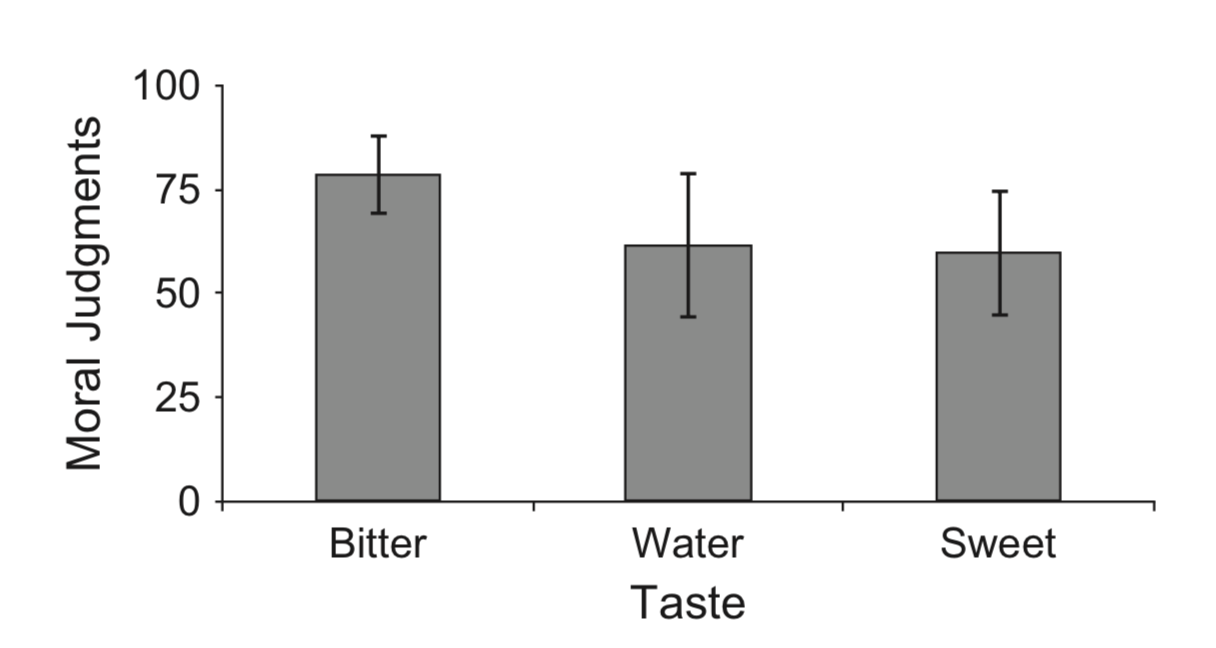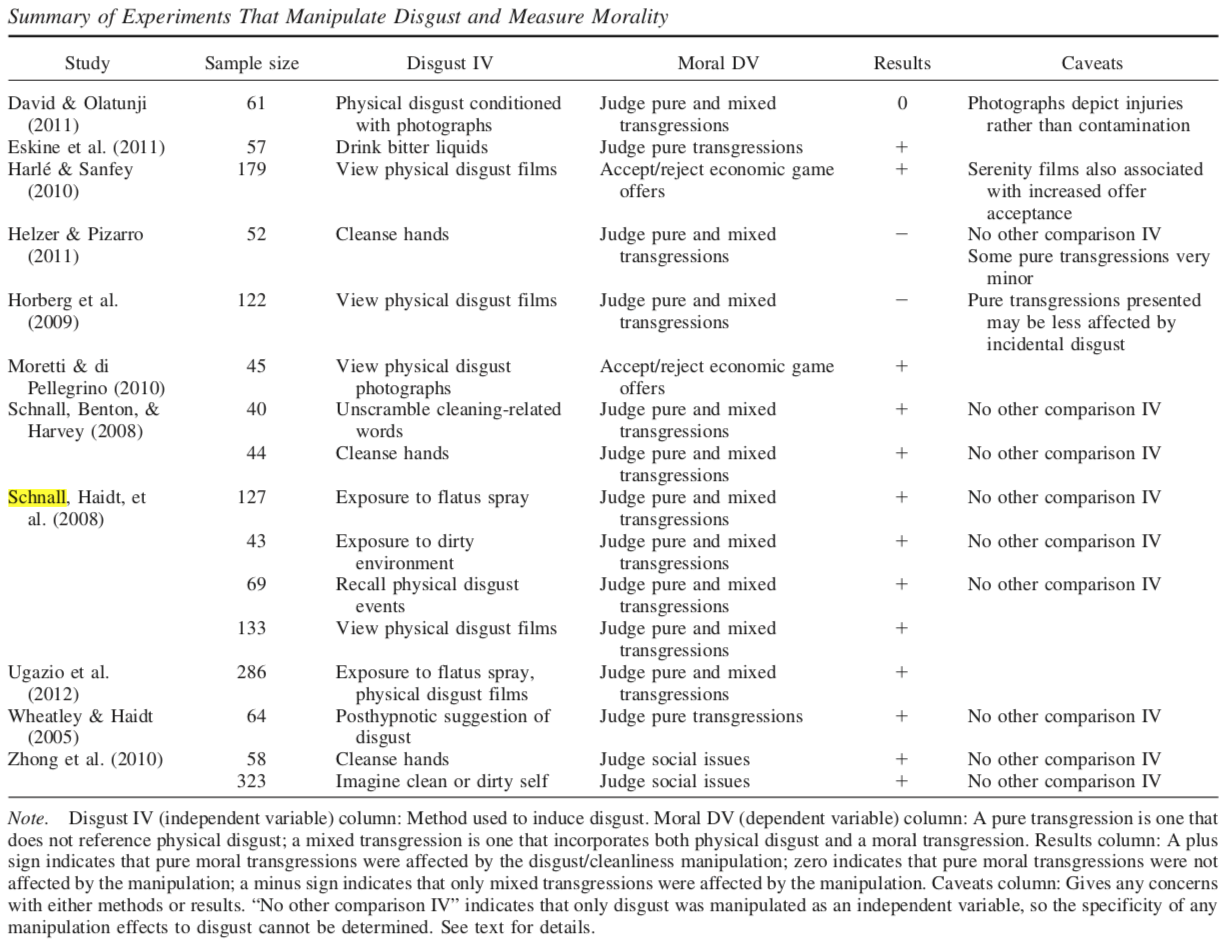Click here and press the right key for the next slide.
(This may not work on mobile or ipad. You can try using chrome or firefox, but even that may fail. Sorry.)
(If the slides don’t work, you can still use any direct links to recordings.)
also ...
Press the left key to go backwards (or swipe right)
Press n to toggle whether notes are shown (or add '?notes' to the url before the #)
Press m or double tap to slide thumbnails (menu)
Press ? at any time to show the keyboard shortcuts
Moral Intuitions and Heuristics: Evaluating the Evidence
replications / related research

Eskine et al, 2011 figure 1

Chapman & Anderson, 2013 table 2
‘To date, almost all of the studies that have manipulated disgust or cleanliness have reported effects on moral judgment. These findings strengthen the case for a causal relationship between disgust and moral judgment, by showing that experimentally evoked disgust---or cleanliness, its opposite---can influence moral cognition’
Chapman & Anderson (2013)
conclusion so far
There seems to be a variety of evidence for the claim
that manipulating disgust-related phenomena
can influence unreflective ethical judgements.
Compare two claims about an Affect Heuristic ...
1. Pachur et al (2012) on risk judgements
2. Sinnott-Armstrong et al (2010) on unreflective ethical judgements (‘moral intuitions’)
frequency, VSL & risk vs feeling
frequency & risk are unknown to subjects
we know feelings are distinct from, and no part of, frequency & risk
ethical valence (wrongness) vs disgust
Is ethical valence unknown to subjects?
Is disugust distinct from, and no part of, ethical valence?
Sinnott-Armstrong et al (2010)’s heuristic model:
unsupported by theory,
and by evidence (so far)
But
emotions do influence
unreflective ethical judgements
(and conversely).
puzzle
Why do feelings of disgust influence unreflective moral judgements?
(And why do we feel disgust in response to moral transgressions?)